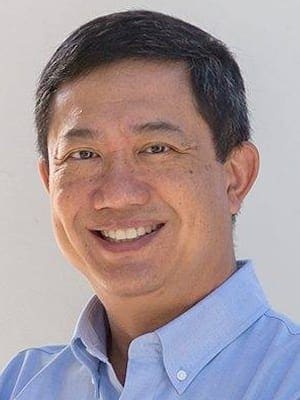About a month ago, I visited Macau with a small group of pastors and lay leaders as part of a missions immersion experience with the Cooperative Baptist Fellowship of Virginia.
We were graciously hosted by Larry and Sarah Ballew – self-funded CBF field personnel who have served in Macau for more than 16 years.
During our first full day in Macau, the Ballews showed us the city. One of the first places we saw was the Ruins of St. Paul’s Cathedral located on the southwest side of the Historic Center of Macau.
Built during 1580 to 1602 by the Jesuits, the cathedral was the biggest Catholic Church building in Asia.
When the Jesuits fell into disfavor under Pope Clement XIV, the cathedral also fell into disrepair until it was destroyed by a fire during a typhoon in 1835, leaving only a façade.
The ruins of this once-grand cathedral have become the city’s most famous historical landmark.
While I marveled at the ruins, I was most struck at what I saw when I turned around 180 degrees from the façade. From that vantage point, as I looked over the Macau skyline, one building loomed large over all others.
It was the Grand Lisboa Casino and Hotel with its 58 floors, 430 hotel rooms and suites, 800 mass gaming tables and 1,000 slot machines. While it remains the tallest building in Macau, it’s not even one of the top-five biggest casinos there.
Stanley Hauerwas once said that it is possible to assess where a society invests its faith by observing which buildings are most imposing and impressive.
In their book “Aging Together,” Susan and John McFadden noted that for most of human history, places of worship dominated city skylines and symbolized humanity’s deepest convictions and highest hopes.
It is obvious that casinos have become the new cathedrals in Macau, where in 2012, 31 million visitors made pilgrimages to this holy city, and more than $38 billion was spent betting that money would fulfill our deepest convictions and highest hopes.
I was tempted to shake my head at what I saw in Macau. That is, until I returned to the United States. It is instructive how going to a different country can give us new eyes to see our own culture.
I now ask myself, “What are the most imposing and impressive buildings in my city?” Where does our society invest its faith? What are we betting on?
As Hauerwas suggests, it might be our local medical center. Or perhaps it’s the sport stadium or the shopping mall.
What convictions and hopes do those buildings symbolize?
Questions to ponder. For those who have eyes to see.
Michael Cheuk is pastor of University Baptist Church in Charlottesville, Va.
Leadership coach and church consultant at MichaelKCheuk.com. He is a Good Faith Media governing board member, who lives in Charlottesville, Virginia.

